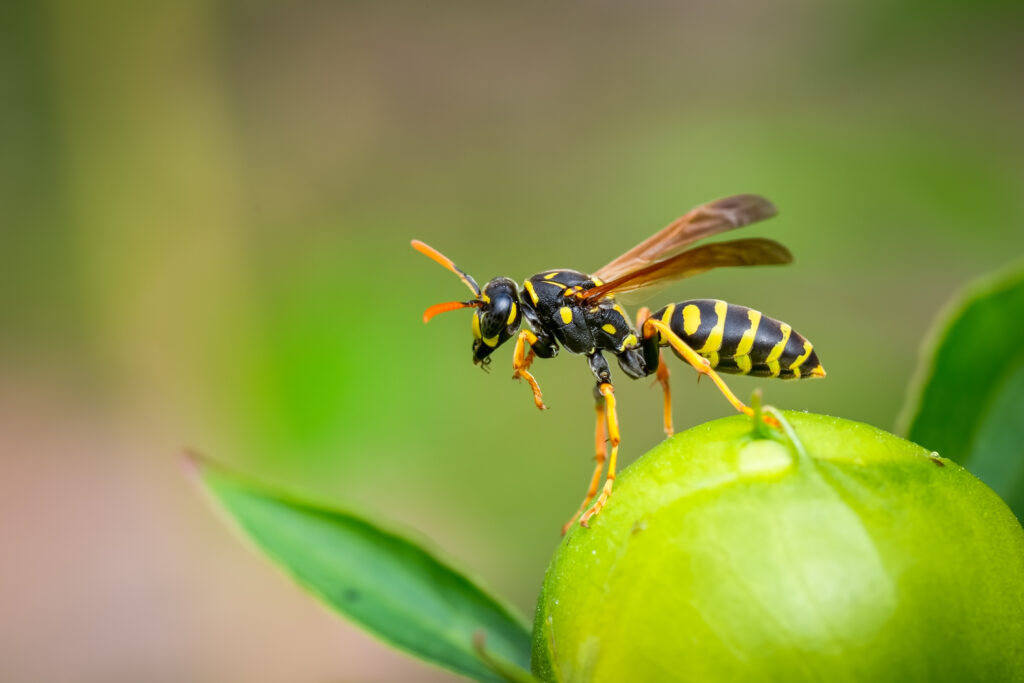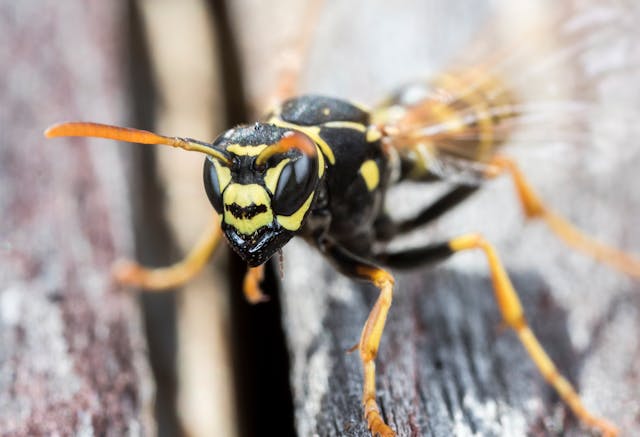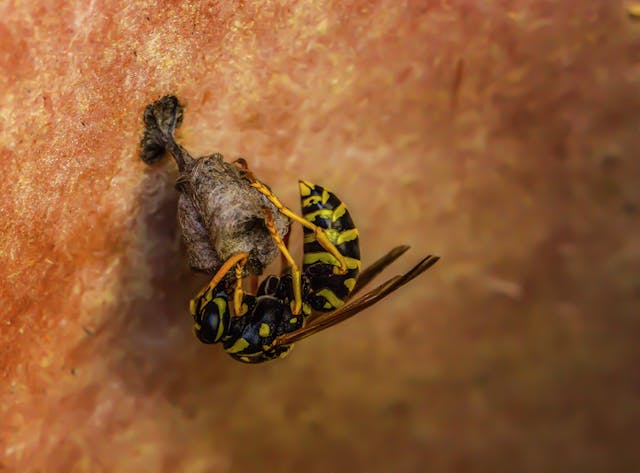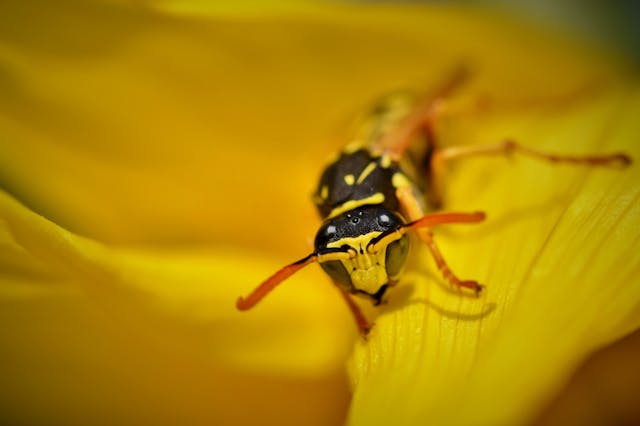
Updated on April 15, 2025
Wasps are common insects that have been around for thousands of years. They come in many shapes and sizes and can be beneficial or cause harm depending on the species. One of the most common questions people have about wasps is “how long does a wasp live?” In this guide, we’ll break down the life span of a wasp, the factors that impact their longevity, and how long different types of wasps live both indoors and outdoors.
Types of Wasps
Wasps are an incredibly diverse group of insects, with over 100,000 species worldwide. They come in many different sizes and colors and can be beneficial or harmful depending on the species.
Solitary wasps are typically smaller than social wasps and live alone. They do not form colonies and do not have a queen. Solitary wasps are beneficial as they prey on other insects, such as caterpillars, flies, and aphids.
Social wasps are larger than solitary wasps and live in colonies. They have a queen and build nests in which to live. Social wasps can be beneficial as they feed on other insects but can also be a nuisance as they may sting if threatened. Keep in mind that wasps can often survive stinging their opponents as opposed to bees.
Cuckoo wasps are a type of parasitic wasp. They lay their eggs in the nests of other wasps, and the larvae feed on the host wasp’s larvae. Cuckoo wasps are beneficial as they help to keep other wasp populations in check. As you can imagine, they impact the lifespan of wasps around them.
What Factors Affect a Wasp’s Lifespan?

A wasp’s lifespan depends on a variety of factors, including the species of wasp, the environment, and predation. Different species of wasps have different lifespans.
Social wasps typically live for one to two years, while solitary wasps live for a few months. The environment also plays a role in a wasp’s lifespan, as extreme temperatures and lack of food can shorten a wasp’s life.
Predation is another major factor in a wasp’s lifespan. Wasps are preyed on by various animals, including birds, frogs, and spiders. The presence of predators can significantly reduce the lifespan of a wasp.
How Long Does a Wasp Live?
The wasp lifespan varies greatly depending on the species, their role in the colony, and environmental conditions. So, how long does a wasp live? Let’s break it down.
The queens have the longest life span of a wasp, often surviving up to a year. They’re built to last through the winter, kickstart a new colony in the spring, and keep laying eggs until they eventually die. Workers and drones? They’re not so lucky. Their lifespan usually caps off at a few weeks to a couple of months, depending on the season. Once winter hits, they’re done for.
Species like mud daubers and potter wasps don’t live nearly as long as social queens. They only last a few months. Adults mate, lay eggs, and then die off. Their larvae are left to overwinter and emerge the following spring. This short wasp’s life span is all about reproduction—nothing more, nothing less.
Cuckoo wasps are among the shortest-lived, living only a few weeks. Their whole purpose is to infiltrate other nests, lay their eggs, and let their larvae feed on the unsuspecting host’s young. They get in, get out, and die off.
Common Predators of Wasps

Despite their stingers and aggressive nature, wasps are not invincible. Plenty of predators actively hunt and eat them, especially when other food sources are scarce. Understanding what preys on wasps can help explain fluctuations in wasp populations and their overall life span. So, what animals are taking down these buzzing pests?
- Birds
- Frogs and Toads
- Spiders
- Mammals
- Dragonflies
- Praying Mantises
These predators play a key role in controlling wasp populations, which can indirectly impact the wasp lifespan by reducing competition and predation pressures.
Interesting Facts About Wasps
Wasps are incredibly interesting insects! One interesting fact is that some species of wasps can recognize human faces. Another interesting fact is that some species of wasps can perform complex behaviors, such as making and using tools.
Many wasp species are highly social, forming intricate colonies led by a queen with a clear hierarchy of workers. They also communicate effectively through various sounds, signals, and even pheromones, allowing them to coordinate tasks and defend their nests with remarkable precision.
Wasp Pest Control Services in the Bay Area

At Banner Pest Services, we have the expertise and tools to safely and effectively remove pests from your home or property. Our team of trained professionals uses proven methods and industry-leading treatments to tackle even the toughest infestations.
Whether you’re dealing with wasps, rodents, spiders, bed bugs, or any other unwanted pests, we’re here to provide reliable, long-lasting solutions.
Contact us today to learn more about our comprehensive pest control services, schedule an inspection, and reclaim your home from unwanted intruders!


